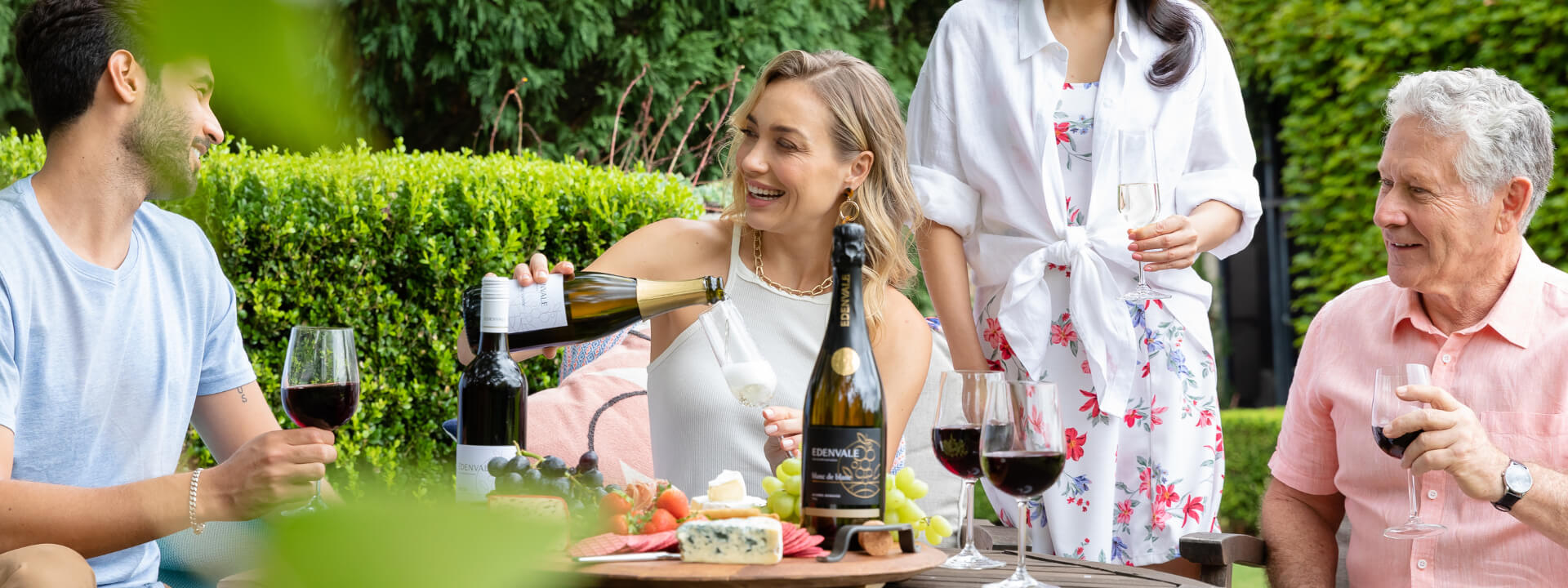-
Edenvale is non-intoxicating
The average finished alcohol level of the Edenvale range is approximately 0.2 – 0.3% Alcohol/Volume, a level similar to that found in natural fruit juices.
The International Standard for a non intoxicating beverage is 0.5% Alc/Vol, of which Edenvale is nearly half. Below this level, the regulatory body, Food Standards of Australia and New Zealand, do not require producers to include any statement of alcohol content or standard drinks.
-
Edenvale is alcohol-removed
Edenvale has the taste and full complexity of regular alcoholic wine, without the alcohol. Delicate alcohol extraction technology is used to ensure varietal definition and flavours are retained in the finished product so consumers can still enjoy a wine experience without the effect of alcohol.
Edenvale wines are included in the ‘functional food’ and lifestyle category of food and beverages.
Functional foods are foods that have a potentially positive effect on health beyond basic nutrition. Proponents of functional foods say they promote optimal health and help reduce the risk of disease. They may be similar in appearance to conventional food and consumed as part of a regular diet.
-
Edenvale has nearly half the calories of normal wine
When alcohol is removed from a wine, so too are large quantities of calories. Alcohol is created from the fermentation of natural sugars found in the grape, hence, the strong relationship between alcohol, sugar and therefore – calories.
The removal of alcohol from wine translates to a reduction in calories. For example, the removal of 13% alcohol by volume translates to over 60 % calorie reduction. Weight watchers reference – 0.5 point per serve.
-
Edenvale is rich in antioxidants
Edenvale has at least the same levels of antioxidants as full alcoholic wine and there is evidence from the Australian National Measurements Institute to suggest that the levels are even higher. This is possibly due to the concentration of the wine when the alcohol is removed. Research suggests the antioxidants last longer in the blood plasma without the presence of alcohol.
Polyphenols (natural plant chemicals) found in the skin of grapes work as antioxidants that may protect your cells from free radical damage and therefore premature ageing. Red wines have more polyphenols than white because the prolonged grape skin contact before making white wines. Although while the levels are higher in red, research with the CSIRO with Invitro trials, it would appear that the bio absorbance is the same within red and whites. This is an area in which Edenvale is continuing to research.
Please leave us a message using the form below and we'll get back to you promptly.




